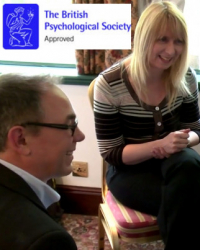Treating the perfectionist - CBT for perfectionism
How to break the cycle of ‘when is perfect, perfect enough?
Perfectionism is not about excellence or healthy development but a rather sophisticated cognitive and behavioural mechanism (including a series of false autosuggestions) that internally sounds something like this: ‘if I deliver at 100% all the time and if I look perfect all the time and if I achieve 100% academically all the time, I shall no longer feel ashamed, embarrassed and will no longer be judged for underperforming – everyone will love and accept me then’.
Striving for a specific ‘reward’, whether material, professional or academic success, is wired into our neurological system and can be healthy for both the mind and body. However, when suffering from low mood and low self-esteem, perfectionism is usually turned into an unhealthy obsession by constantly shifting the goalposts or aiming for unrealistic or even impossible standards.
According to Roz Shafran (2002) “the overdependence of self-evaluation on the determined pursuit (and achievement) of self-imposed, personally demanding standards of performance in at least one salient domain, despite the occurrence of adverse consequences” explains the mechanism behind perfectionism.
This obsessive drive forward is often misread by significant others (for example immediate family) as ambition. There is a threshold nonetheless, observable to the trained eye, by the experienced clinician who understands the difference between pathological tendencies that reinforce an anxiety or a depressive disorder and a healthy motivation to achieve.
You will learn:
- A clear description of pathological (or clinical/unhealthy/dysfunctional) ‘perfectionism’ and a deeper understanding of a term that people commonly use to the extent that it has now been normalized. It has become part of our usual vocabulary.
- How clinical (unhealthy) perfectionism manifests itself.
- How to recognise it in the therapy room
- Understanding mechanisms involved in the maintenance of perfectionism.
- Understanding what other disorders are associated with clinical perfectionism (e.g. other anxiety and depressive disorders) – and how they interact with it.
You will also learn specific interventions and treatment designs:
- Introducing and socialising clients to the CBT model
- Psychological education – about CBT and specifically perfectionism maintaining factors in CBT
- Modifying and challenging dysfunctional assumptions, problem-solving and setting realistic goals.
- The creative use of behavioural and social experiments as well as imagery work
- How to integrate different skills used in the treatment of depressive and anxiety disorders.
- The integration and use of hypnosis and negative self-hypnosis (negative autosuggestion model) into the CBT model
- The use of other more recent CBT approaches also know as third wave therapies such as mindfulness and acceptance, imagery, and relaxation.


Daniel Mirea is a senior psychotherapist and lecturer who is trained in all aspects of Cognitive Behavioural Therapy with a career of more than 25 years in the mental health field. He is an accredited practitioner with both BABCP and UKCP, a fellow alumnus of King’s College and a senior associate at The Royal Medical Society.